
AUGUST 2022 | Volume XV, Issue 3 Alliance Defending Freedom Fending Off The Increasing Attacks On Parental Rights PAGE 5 Meet ADF’s Youngest Ambassador Captain PAGE 8 A Violent Attack Won’t Stop This Pro-life Organization PAGE 17 A Colorado Artist Looks To The U.S. Supreme Court To Defend Her Right To Speak Freely All In
FREEDOM VOTER GUIDE
ADF’s Freedom Voter Guide is designed to help voters make informed decisions about who to support in their state legislative elections in November.
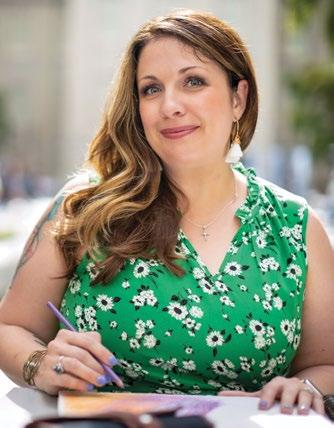
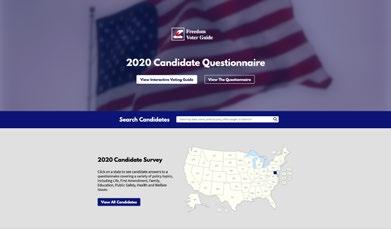
Î Learn where state legislative candidates stand on a variety of policy issues, like life, religious liberty, education, parental rights, and free speech.
Î View a list of candidates’ current endorsements.
Î Locate candidates’ contact information.
VISIT: FreedomVoterGuide.com to view the Guide.



1 August 2022 Vol. XV, Issue 3 Editor Karen Kurtz Senior Writer Chris Potts Art Director Jonathan Marshall Photography Bruce Ellefson Contributors Natalie Allen Julaine Appling Michael Farris Tyson Langhofer Angeline Riesterer
COVER STORY 9 All In A Colorado Artist Looks To The U.S. Supreme Court To Defend Her Right To Speak Freely COLUMNS 1 Minutes With Michael Seizing An Opportunity 3 News & Quick Takes Case Updates From Around The World 5 Special Feature Fending Off The Increasing Attacks On Parental Rights 8 Ambassador Profile This Young Ambassador Is Ready For Takeoff 17 My View We Will Not Be Bullied Into Silence 19 Q&A Veteran Columnist Discusses Challenges Of Practicing Faith In Journalism 21 Opinion College Students: Freedom Of Speech Is Yours To Exercise And Defend Facebook.com/AllianceDefendingFreedom Twitter: @AllianceDefends Instagram.com/AllianceDefendingFreedom Parler: @AllianceDefendingFreedom YouTube.com/AllianceDefends Questions or comments on this issue? Email Editor@ADFlegal.org. 15100 N. 90th Street, Scottsdale, AZ 85260 ADFlegal.org | 800-835-5233 Referral to websites not produced by Alliance Defending Freedom is for informational purposes only and does not constitute an endorsement. DONATE: ADFlegal.org/fj - donate
CONTENTS
Minutes With Michael
Seizing An Opportunity
By Michael Farris, President and CEO
I’m learning Spanish. It’s a new venture for me, unless you count the two weeks my class studied the language in the fourth grade. I mastered how to count to 20 and say, “The house is white.” That was more than adequate for a 9-year-old growing up in Washington state. But now, I’m motivated to go beyond those rudimentary lessons.
Recently, I spent a week in Guatemala for the Ibero-American Congress for Life and Family. Though presentations were in Spanish, I was inspired as they were interpreted for me. We heard from Guatemala’s president, who proclaimed his country “the pro-life capital of Latin America,” and the president of the nation’s Congress — who led us in a Christian hymn.
As voices rang out through the auditorium, I caught one phrase despite the language barrier: “Jesus is the only way.” I later learned that the truth of those five words is embraced by many in the Central American country. As many as 60% of Guatemalans self-identify as evangelical Christians, and a strong pro-life and profamily movement has taken hold there.
Right now, the greatest opportunity for advancing Alliance Defending Freedom’s collective issues globally is in Latin America. ‘‘
Michael Farris
In neighboring Mexico, however, wokeism is in full despotic rule. Last year, three Mexican priests, two cardinals, and a bishop were indicted and convicted for simply encouraging congregants to “to pray and ask God to illuminate them when they vote.” The government has since threatened to fine and even shut down the churches of those who involve themselves in politics.
Wokeism has a stranglehold in many other Latin American countries as well. Much like in the United States, free speech and religious liberty are being undermined as traditional views on family, sexual identity, and the value of human life are suppressed.
But I came away from Guatemala believing that, right now, the greatest opportunity for advancing Alliance Defending Freedom’s collective issues globally is in Latin America. Despite attacks on traditional values in these countries, many — like Guatemala — have also seen a remarkable spiritual awakening. The largest surge of Christian conversions internationally is taking place in this region.
We’re taking hold of this opportunity. In the past year, ADF has contributed to the founding of new organizations dedicated to the legal defense of fundamental freedoms in Ecuador, Bolivia, Mexico, and Colombia. We plan to expand our work into Argentina, Honduras, Peru, and Uruguay in the near future.
Our efforts will continue to grow. During our time in Guatemala, Tomás Henríquez, ADF’s director of Advocacy, Latin America & Caribbean, engaged with legislators from a variety of countries to discuss the most effective strategies for each one. I anticipate joining him for a follow-up gathering this fall.
With the help of Rosetta Stone, my Spanish language skills are improving — at least well beyond my fourthgrade level. I’m eager to join the conversation.
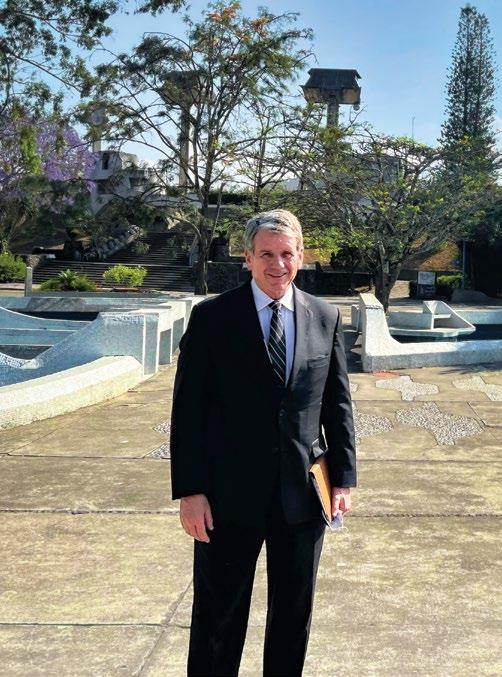
2
Michael Farris at the Guatemala National Theater
News & Quick Takes Case Updates From Around
The World
Boston, Massachusetts
The U.S. Supreme Court unanimously ruled that the city of Boston cannot exclude a Christian flag from its City Hall flagpole program, which allows a wide variety of other flags to be flown. The court ruled that flying the Christian flag qualified as private speech rather than a form of government speech.
“When city officials open a program or activity to ‘all applicants,’ they cannot exclude those wishing to express religious beliefs,” says John Bursch, ADF senior counsel and vice president of appellate advocacy. “This case is about much more than displaying a Christian flag at City Hall. This is about the protection of our First Amendment rights, which extend equally to all Americans.”


ADF joined Baker & Hostetler, LLP, attorneys for The Bronx Household of Faith, in filing a friend-of-the-court brief with the high court. In a similar case, ADF attorneys represented the New York City church for more than 20 years in its legal battle to continue renting an otherwise empty public-school building on Sundays for the church’s weekly worship service.
This case is about much more than displaying a Christian flag at City Hall. ‘‘
John Bursch
Greensboro, North Carolina
In settlement of a lawsuit that ADF attorneys filed on behalf of several pro-life citizens who were arrested for engaging in peaceful prayer and sidewalk counseling outside an abortion facility, Guilford County officials have agreed that engaging in pro-life advocacy on public sidewalks is protected by the First Amendment.
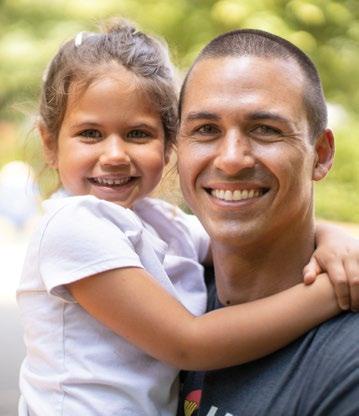
Law enforcement officials for the city of Greensboro and Guilford County claimed the arrests of several members of the Christian pro-life ministry Love Life in March and April 2020 were warranted because they violated the county’s emergency proclamation related to COVID-19. However, Love Life members had carefully adhered to all provisions of the proclamation, only engaging in activities that complied with the county’s order.
In the settlement, the county agreed to pay $15,000 toward the pro-life members’ attorneys’ fees, and to uphold citizens’ First Amendment rights in any future proclamation order related to the COVID-19 pandemic. The pro-life advocates agreed to forgo seeking damages from the county.
East St. Louis, Illinois
A Christian student has sued Southern Illinois University Edwardsville for stifling her constitutional right to speak freely about her religious beliefs and political views.
In February, the university ordered Maggie DeJong, then a graduate student in SIUE’s Art Therapy program, to have no contact with three classmates after they complained about her expression of religious and political viewpoints. Like many other students, DeJong had expressed her views on social media and in class discussions on an array of topics, including religion, politics, critical race theory, COVID-19 regulations, and censorship.
The university did not give DeJong a chance to defend herself or identify any policy that she had violated. ADF is representing her in the lawsuit.
“Maggie has always respectfully shared her religious or political views,” says ADF Senior Counsel Gregg Walters. “It is a sad day for civil dialogue and freedom of speech when universities can issue gag orders like those issued against Maggie for nothing more than expressing her beliefs.”
 Justin Reeder, Love Life founder, with his daughter, Josie
Justin Reeder, Love Life founder, with his daughter, Josie
Finland
A Finnish court has upheld the right to free speech by dismissing all charges against Finnish Parliamentarian Päivi Räsänen and Bishop Juhana Pohjola. In a unanimous ruling, the Helsinki District Court concluded that it was not the court’s role “to interpret biblical concepts.” The former Minister of the Interior had been charged with “hate speech” for sharing her faith-based views on marriage and sexual ethics in a 2019 tweet, a 2019 radio debate, and a pamphlet she authored in 2004. Pohjola faced charges for publishing Räsänen’s pamphlet for his congregation over 17 years ago.
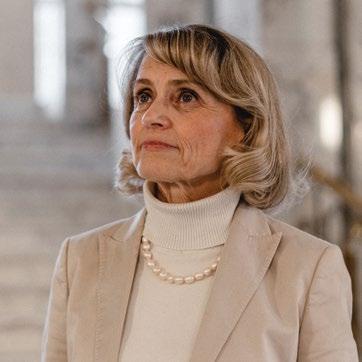

Nepal
A pastor in Nepal has been sentenced to two years in prison and forced to pay a fine under a law against proselytizing. It was the country’s first conviction since the law went into effect in 2018.
In March 2021, Pastor Keshab Raj Acharya received a call from a man requesting prayer for his sick wife. In response, the pastor invited the man to come to his house for prayer. Later, when the man knocked on the door, four police officers were there to arrest the pastor. He was released in April, only to be arrested again moments later on charges of “outraging religious feelings” and “proselytizing” because he had been distributing gospel tracts.
Räsänen’s defense, supported by ADF International, argued that finding Räsänen guilty would significantly damage free speech in Finland. Her words, the defense argued, were an expression of Christian teaching.
The court recognized that while some may object to Räsänen’s statements, “there must be an overriding social reason for interfering with and restricting freedom of expression.” The court concluded there was no such justification.
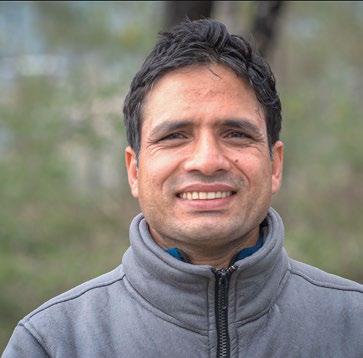
Pastor Keshab spent almost three months in jail before his sentencing. He has appealed the ruling and is temporarily free on bail. ADF International is supporting the pastor’s legal defense.
United Kingdom


A woman from Liverpool, England, is contesting a penalty she received while going on a prayer walk during a COVID-19 lockdown. Rosa Lalor walked and prayed silently almost every day during the 2021 lockdown as part of the daily exercise permitted by the regulations at the time. She was masked, socially distanced, and alone.
When approached by a policy officer one day, she was questioned as to why she was outdoors and outside an abortion center. She answered that she was “walking and praying.” The officer responded that Lalor wasn’t praying in a house of worship, and that she did not have a “reasonable excuse” to be outdoors. She was arrested, detained in a police car, and fined under temporary coronavirus measures.

“I never thought that in a democratic country like the UK I would be arrested for a simple and solitary prayer walk,” said Lalor. “What kind of society are we, when people can be arrested simply for peacefully manifesting their faith in public?”
With ADF UK’s support, Lalor is challenging her fine in court.
4
Maggie DeJong
Rosa Lalor Päivi Räsänen
Pastor Keshab Raj Acharya
Fending Off The Increasing Attacks On Parental Rights
By Karen Kurtz
At Christmastime, a 12-year-old girl in Wisconsin’s Kettle Moraine School District told her parents that, when she returned to the classroom after her school’s winter break, she wanted to use a male name and pronouns.
The girl had been struggling with anxiety and depression. Now she was questioning her gender, and school officials had pushed her to say she was a boy. With the school’s influence, she was convinced. But her parents knew how harmful it would be to allow this sudden, significant change to their daughter’s identity.
They contacted school officials, letting them know that teachers and staff should continue to use their daughter’s legal name and female pronouns when school started again. The officials refused.
To protect their daughter, the parents transferred her to a private school that would respect their wishes. Just a few weeks later, her gender confusion resolved. Looking back, she realized that “affirmative care” — the school’s validation of her wish to change her identity — “really messed me up.”
39 STATES DID YOU KNOW?
Have no statutes that expressly define and protect parental rights.
Source: ParentalRights.org

Parents presume a fundamental right to direct the upbringing of their children. But that right is increasingly under attack across America — especially in public education, as school boards adopt policies based on radical ideologies and shut parents out in the process.
• Schools are bringing critical race theory (CRT) into the classroom, treating students differently based on their race and ethnicity. White students are compelled to affirm statements like “America is fundamentally racist” or to confess their own (or their parents’)
5
Special Feature
“white privilege” or “implicit bias.” Minority students are told that no matter how hard they work, their success will be limited by the color of their skin.
• Gender identity curricula teach that children can choose whether they want to be a boy or girl, steering them away from the scientific reality that people are biologically and unchangeably male or female.
Children as young as 3 are introduced to imaginary figures like the Gender Unicorn. And if any child expresses an interest in being the opposite sex, school gender policies require all teachers and staff to immediately “socially transition” that child by using a transgender name and pronouns, allowing the child into opposite-sex restrooms, and more.
Responding to these ideological threats and the growing concerns of parents, Alliance Defending Freedom is working to achieve a Generational Win for parental rights. Last year ADF launched the Center for Parental Rights, bringing together a team of attorneys dedicated to protecting the rights of parents through litigation. Cases primarily center around parents’ rights in public schools.
CONTACT ADF
if you believe your or your child’s rights have been violated. Visit adflegal.org/request-legal-help.
“There’s a lot of areas where questions of parental rights are being raised,” says Senior Counsel Kate Anderson, director of the Center, citing as one example parents’ concerns about adopting or fostering children without having to hide their own religious beliefs.
“But we’ve made the call that, for our direct litigation, we should focus right now on public schools — in particular, race-based CRT curriculum and gender theory-related policies. Those are the major pressure points.”
These radical ideologies quietly began taking root in public schools a few years ago, Anderson says. But the problem became evident in the early days of the COVID-19 pandemic, when most students were doing online learning at home.
“Suddenly, parents who had assumed they knew what was happening in the classroom were hearing what was really going on from their living room or their kitchen,” she says. “They realized what radical things were being taught to their children.”
Parents were also becoming aware that schools were hiding things from them.

“Are your parents listening? ” a father remembers hearing from the virtual classroom of one of his children. “Can you put your headphones on? ”
That heightened his concerns about a race-based policy that had recently been introduced in Albemarle County, Virginia, where his children attended school. When he and his wife asked the school to see the curriculum that had been created under the policy, a school official refused, instead offering, “Your child may choose to share the material with you.”
Later, when the couple asked the school to opt their children out of the race-based teaching, they were told that this wasn’t an option. At that point, they knew they needed to take action.
Last December, the family joined four others in suing the Albemarle County Public School Board for enacting discriminatory policies and indoctrinating students in radical ideology.
47 STATES DID YOU KNOW?
Do not grant parents review of learning materials and activities in advance of teaching.
Source: Goldwater Institute, January 2020
Suddenly, parents who had assumed they knew what was happening in the classroom were hearing what was really going on from their living room or their kitchen.
Kate Anderson, Director, Center for Parental Rights
6
Kate Anderson
‘‘





DOWNLOAD
the Parents’ Toolkit on Critical Theory. Visit adflegal.org/issues/parentalrights.
Many school boards, like Albemarle’s, fail to recognize the nature and scope of parental rights. And government
officials often claim that they, rather than parents, get to make decisions about children’s education.
“They’re all our children,” President Joe Biden told teachers gathered at the 2022 National and State Teachers of the Year event in April. “They’re not somebody else’s children; they’re like yours when they’re in the classroom.”
But parents, not schools or governments, have the fundamental right to direct their children’s upbringing and education.
This deception, along with the harmful ideologies themselves, is a growing problem in schools, as evidenced by the calls that come into the Center for Parental Rights.
“What are our rights? ” parents want to know. “What do we do? ”
“We’re getting requests from all different states, with all different political makeups,” Anderson says. “These problems stretch across the United States.”
But, more and more, parents are also standing up for their rights and their children’s safety.
“Parent groups are forming. And a lot of parents are pushing back on this issue — simply asking to know and have a voice in what’s going on in their schools.” The media often portrays these parents as angry and unreasonable, but Anderson finds that isn’t the case.
DID YOU KNOW?
12 STATES
“Parents know what’s best for their children,” Anderson says. “They are the ones with the God-given responsibility to raise their children. They need government to stay out of the way so they can do that.
Do not allow parents to be involved in their schools’ sex ed curriculum.
“All of the parents I talk to are saying, ‘We just want to talk to our school. We want to have a conversation with our administration. We want to have some influence when we think that schools are creating an environment that’s bad for all students.’”
TSource: Heritage Foundation, May 2019
roubling changes in the public-school environment drive some parents to opt for private schools or homeschooling instead. But those alternatives are not options for every family. And Anderson believes public schools are worth fighting for.
“We’re talking about the government, via the schools, saying that they know what’s best for a child — a child they hardly know, if at all. And they’re going so far as to block a parent from information — in some cases actively lying to a parent about what’s going on with their child.”
We’re talking about the government, via the schools, saying that they know what’s best for a child — a child they hardly know, if at all.
‘‘
Kate Anderson, Director, Center for Parental Rights
“I was a public-school kid, my mom taught public school, and I really believe in the public-school system,” she says. “I had a really good experience.” A parent of three children, Anderson sees value in today’s public education as well.
“There are a lot of public schools that give a strong education and provide opportunities for advanced placement,” she says. “You see many really well-educated kids coming out of public schools.”
Anderson attributes that to the caring teachers and dedicated administrators — she meets them all the time — who want to work with parents and create a positive learning environment for students.
This gives her hope.
“The problem is widespread,” Anderson admits. “It’s happening in a lot of different places, in a lot of different schools. But many teachers and administrators agree with us. And I feel encouraged by the parents that we’re working with.
“If we can bring the schools and the parents back together, working together, we can solve this.”
7
For most of his life, Stephen Morris was a boy with his head in the clouds.
From earliest childhood, he had his sights set on a career as a pilot. The Tennessee-born young man even enrolled at Auburn University to pursue a Professional Flight degree. Then, a funny thing happened: Stephen grounded himself.
He realized, he says, that the things he cared most about weren’t up in the clouds. He was much more concerned with what he saw happening to his country and its culture.
It became “increasingly apparent” to him, Stephen says, “that essentially all Christian and conservative values are under unrelenting attack.” And that “now is the time for decisive action, to boldly stand up for what is right and true.”
To Stephen, that meant a new flight plan: a career in law. He changed his major and began looking for a place to invest himself outside of the classroom.
HStephen Morris
This Young Ambassador Is Ready For Takeoff
By Chris Potts Alliance Profile
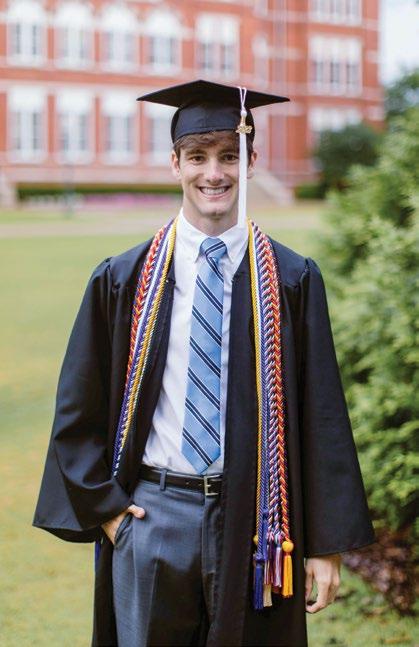
e wanted to throw his time and energy in with an organization that was genuinely committed to standing for Christian ideals and constitutional principles. So, he did something not every college student does: his homework.
After some “thorough research,” he says, he determined that Alliance Defending Freedom is “the organization that best accomplishes this goal.”
“There’s plenty of other great Christian legal organizations out there, but ADF really just struck me as being super professional,” Stephen says. “It’s Christcentered. They have a great strategic plan. And they win a lot.”
Stephen joined the ADF Ambassador Program — a group of volunteers committed to raising awareness of the ministry’s issues and programs, and to building support for the organization. As an Auburn student, Stephen set about recruiting that support from his fellow Tigers.
“I’ve tried to spread the word about ADF,” he says. “Everyone knows about the ACLU, but no one really thinks that there would be a Christian legal organization.”
Stephen says his peers were encouraged to know something like ADF exists — and is so effective.
“I get great responses,” he says. “A lot of my friends are very passionate about these issues.”
Stephen is younger than most ADF Ambassadors, “which is cool,” he says. Young people “have a lot to learn from older people.” But he thought he had some things to contribute, as well — in particular, a social media savvy that’s more common to his generation than the ones before. He became the Ambassadors’ first Social Media Captain, spearheading efforts to broaden the group’s communication reach in that arena.
His work has translated into a full-time position on the ADF team, beginning this past July, as the ministry’s first Government Affairs Administrator, drawing on his college experience interning with the Alabama legislature and a federal judge. He’s still deciding if the future leads toward law school.
“I want to do something fulfilling and with purpose,” Stephen says. Meanwhile, the young man who chose not to be a pilot is watching his future take flight.
8
Stephen Morris at his graduation from Auburn University in May
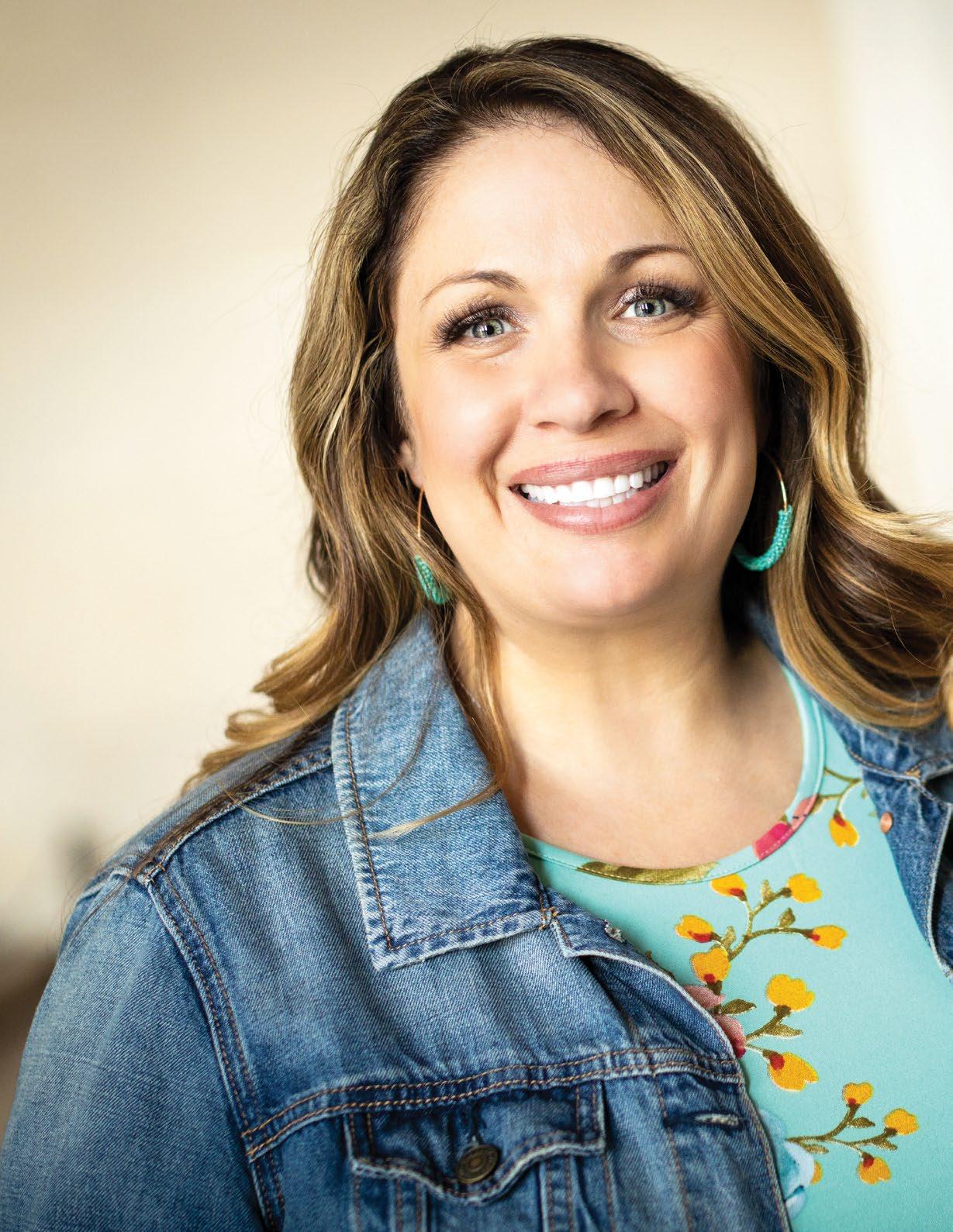
I’m an ambassador for Christ … this is about Him, not me.
‘‘
Lorie Smith
9

Cover Story
All In
A Colorado artist looks to the U.S. Supreme Court to defend her right to speak freely
By Chris Potts
One morning last March, in the middle of a difficult week, Lorie Smith pulled an interesting-looking card from her overflowing mailbox. “I’ve been praying for you since Day One ,” it read. “And I just really appreciate your stand and continue to lift you in prayer.”
She was still smiling at that, minutes later, driving up to her bank. Depositing checks in the ATM, she gradually felt a growing hubbub of activity around her. Sirens, coming closer. Squad cars pulling into view. Police officers, hands on their weapons, shouting and hurrying to block the exits of the bank.
“A robbery!” she realized. “I’ve got to get out of here!” She imagined an armed suspect running out to jump in her car.
She hurriedly canceled her transaction, swerved out of line, and bounced over the nearest curb. Speeding away, Lorie, who usually makes a point of going inside the bank to do her business, marveled at her deliverance. Which she realized, on reflection, was pretty consistent with the protections she’s been blessed with for most of six years now.
Between “fight or flight,” Lorie’s dad says, his oldest daughter’s instinct has always been the latter. But that was years ago, before Lorie became aware of a different kind of robbery … one plotted by government officials bent on taking one of her most basic freedoms away from her.
That injustice, Lorie decided, was one she couldn’t just run away from.
10
I decided that I was going to jump all in. I was going to live my life in a way that honors God.
Lorie Smith
Littleton, Colorado, at the foot of the Rocky Mountains, is about as beautiful a place as you’re likely to find to grow up. Four seasons, snow-capped peaks, wildflowers and wildlife. If you can add to that loving parents, a close-knit extended family, a passel of friends, and plenty to do, you grow up thinking life is good and the world is your oyster.
“I had an incredible childhood,” Lorie remembers. She thrived on playing sports and swimming in the backyard pool, traveling with her family, and visiting with her beloved uncle and grandparents. She delighted in her grandfathers’ tales of military life, her grandmother’s prayers, and her little sister doing — sometimes — what she told her to do.
Her parents were both busy, successful entrepreneurs. She enjoyed helping with creative tasks in her mother’s women’s clothing boutique during school vacations, and hanging around her CPA dad’s piles of paper during tax season.
“I learned at a very early age that my parents worked really hard,” Lorie says. They passed that ethic on to her, along with encouragement to stand up to anyone determined to shove her around.
“There’s a gene that runs deep in this family,” her mother, Paula says — a gene she describes as an inclination to push back against injustice. But Lorie’s dad, Gary, says his daughter also inherited some other strands in her DNA.
“She’s a caregiver,” he says. “She was born that way. The stalwart — shy, introverted, sweet, and kind.”
“I always had a respect for my parents and never wanted to make life difficult for them,” Lorie says. “So, I was always more of a rule-follower. Never wanted to stir the waters.”
What she did want to do was create. “I just loved it,” she says. “Early — like, 5, 6, 7 — I remember crafting and doing paint-by-numbers and making things for people. My poor parents. I probably created so much stuff that they were like, ‘Where do we put this?’”
Paints, pottery, metals, all intrigued her, but entering middle school, she found the Mac computers in the library, and a program that let her play with an endless variety of fonts, colors, and designs. “It was the first time I realized that I could create on a computer,” Lorie says. “I wanted to spend every moment in that Mac lab.”

11
‘‘

She fine-tuned her artistic skills by making flyers, designing art displays, and writing ad copy for her mom’s boutique. Later, in college, she discovered web design. Realizing that her then-employer needed a website, she offered to design it. To her delight, the public relations team put her to work on that and other marketing projects.
That employer was the state of Colorado. The same state government that, years later, would be bent on controlling the young woman whose creative talents they once so valued and respected.
When I realize that what I’m doing I’m doing for His glory, that becomes the focus, and my creative outlet just explodes.
Smith
In the meantime, Lorie found one great love, and lost another.
The one she found was a young man playing drums in the same high school band she was gracing with her tuba talents and saxophone serenades. She and he discovered that, in the grand old phrase, they “made beautiful music together.” Somewhere between football rallies and a European concert tour, they fell in love and, eventually, married. They both enjoyed travel and especially scuba diving, and for a while, life went along swimmingly.
— and his brother, a hard-working family man who shared his mother’s deep beliefs. His sudden death, in an accident, burned a bitterness deep into Lorie’s soul.
“I was really angry,” she remembers. “He was such a good guy. How could God take away someone so good and important to me?” She nursed the grudge, but when her husband expressed a desire to become more involved in church, she agreed — if only to challenge God to a duel.
“I was going to disprove that He exists, and that He is good,” she says. “So, I just sat there in services and basically loaded up on ammunition to argue about later.” The strategy backfired.
“Every Sunday, it was like the Lord was slowly hacking and chipping that callous rock off my heart.” One day, she realized that “God had already been working in my life. I could see it, and things just … changed.

Growing up, Lorie’s family were “C & E” churchgoers, she says, attending on Christmas and Easter. Lorie was fine with that at the time, but as years passed, she couldn’t shake the feeling that “something important was missing” in her life.
What she knew of faith came mainly from extended family members, including her dad’s mother — “just an incredible woman of God”
“When that happened, I decided that I was going to jump all in. I was going to live my life in a way that honors God. And it’s just impacted everything that I do. I see the world through a different lens now, and it’s incredible.
“I’m unable to compartmentalize,” she says. “What I believe is so important that it requires me to be ‘all in.’” That transformation enveloped even her creative talents, Lorie says. “When I realize that what I’m doing I’m doing for His glory, that becomes the focus, and my creative outlet just explodes.
12
‘‘
Lorie

“In doing that — and putting Him first — He’s taken me in a direction I never thought I’d be going.” That new direction put her on a collision course with a government obsessed with stamping out the faith that guides her life and determines what messages she can create.
H“It’s like, ‘Well, I probably should get paid,’” she laughs. “But it doesn’t bring me a lot of joy. I get joy when I meet with my clients.”
She’d like that to include wedding clients. Lorie’s lifelong enthusiasm for all things wedding was magnified by the design work she did for her own ceremony, and by her faith in Christ, which the Bible relates to a marriage relationship. The prospect of blending her faith beliefs with celebrating love stories is especially appealing.
“It’s the relational side of me,” she says. “You get to know the couple, and their story.” Designing wedding websites would allow her to tell those stories in a creative way, “and I like doing that through God’s lens.”

er work for the state of Colorado launched Lorie into a lively variety of jobs in both the public and private sector, each adding its own opportunity to stretch and grow her considerable creativity and burgeoning organizational skills.
But, as the years went by, Lorie felt more and more “boxed in” by corporate work. She began dreaming of opening her own studio, where she could allot all the time she wanted to the projects and causes she cared about — veterans, animal shelters, children with disabilities — and where she herself could decide what messages she would promote.
Soon after, she launched “303 Creative” — named for her Denver area code. “I love being able to choose projects that I think are a good fit for me,” Lorie says. She delights in doing a little bit of everything — marketing, advertising, graphic design, branding, website design, strategy, social media consultation — and thrives on interacting with her customers. In between, she tries to remember to bill people for her services.
She was about to learn that the state of Colorado was looking through a very different viewfinder.
Like most Coloradans, Lorie was familiar with cake artist Jack Phillips’ conflicts with state officials who’d ordered him to forgo making his inspired wedding creations unless he was willing to create them to celebrate same-sex unions, too.
Jack, a Christian whose faith teaches that God designed marriage as the union of one man and one woman, declined to do so. That led to legal action and a case that was eventually decided in Jack’s favor, at the Supreme Court. Still, as a result of Colorado’s law, Jack continues to face lawsuits and harassment.
One day, Lorie’s pastor, referencing Jack’s case, asked Lorie what she would do if she were asked to create a website celebrating a same-sex wedding. The question gave her pause. She works with clients who identify as LGBT, but she also holds biblical beliefs about marriage. She would not, she knew, be able to create a website expressing a message in conflict with her faith.
Seeing the strong possibility of a coming collision, her pastor suggested that Lorie contact the legal group representing Jack: Alliance Defending Freedom.
That led to a sobering conversation. ADF attorneys confirmed her fear that Colorado officials were in fact
13
censoring her speech and could force her to create and promote messages that violated the very core of who she is. The fact that she cheerfully worked with clients from all walks of life — including those who identify as LGBT — would make no difference. Neither would the fact that her decision to create is always based on the message being celebrated, not the people involved.
That left her with three legal alternatives: 1) obeying the law (and violating her conscience), 2) staying out of the wedding field (and keeping her beliefs to herself), or 3) challenging the unjust law infringing on her freedom of speech.
“If something is inevitable, you can challenge it,” says Jonathan Scruggs, ADF senior counsel and director of the Center for Conscience Initiatives. “It’s not like the threat is unclear. Colorado is already censoring Lorie’s speech and preventing her from designing for weddings in ways consistent with her faith. Moreover, in Colorado, it’s kind of a search-and-destroy environment for artists who embrace the belief that marriage is between a man and a woman — just look at how they’ve treated Jack Phillips all these years. She and everyone else can see the writing on the wall.
Scruggs says, “then to publish it on the internet for the whole world to see. I can’t think of something more of an affront to your conscience than that. It’s oppressive And the high court has never upheld something like that.”
Lorie began praying about the possibility of challenging the Colorado law. “I love helping people, whoever they are,” she says, “including those who identify as LGBT. But I shouldn’t face punishment because I believe in Jesus Christ. It’s not okay that the government can shut off someone’s voice or close their business because it doesn’t like their beliefs.
It’s not okay that the government can shut off someone’s voice or close their business because it doesn’t like their beliefs.
‘‘ Lorie Smith
“Imagine being forced to custom design and then create something that violates your core convictions,”
“God has blessed me with my skills and talents, and it’s a nonnegotiable for me that I use these skills and talents in a way that glorifies and honors Him.”
That same conviction prevents her from promoting certain political ideas, or atheism, or casinos. Nothing that is antiAmerican, degrades people who identify as LGBT, or disrespects someone’s faith.
“I always have and always will work with anyone,” Lorie says. “Like most artists, I just can’t promote all messages requested. I fully embrace the beauty of God’s design for marriage. I know some people don’t agree with that view. But that’s the beauty of America — we should

I love helping people, whoever they are.
Lorie Smith
‘‘
all be free to speak consistently with our beliefs — even if the government doesn’t like our beliefs.”
In the end, all of that contributed to a difficult choice: her decision to challenge an unjust law. The determination of Colorado officials to censor her would prevent her from pursuing her great passion for creating graphics and websites that honor God’s truth about marriage. She would be forced to choose between giving up her dream or compromising her faith — and she wasn’t willing to do either.
So, nudged along, perhaps, by that family gene that balks at injustice — the young woman inclined to turn from a fight instead stepped into the fray.
In September 2016, ADF filed a complaint in federal court against Colorado officials on Lorie’s behalf.
And the roof caved in.
The opposition has been relentless, these last six years. From the day her case was filed, Lorie has been deluged with hate mail and cruel voices on the telephone. Threats to rape her, threats to kill her, threats to kill her husband and daughter. False Facebook accounts designed to look like 303’s, and fervent wishes for her to contract cancer.
She’s lost clients. Some friends and colleagues denounced her, and drifted away.
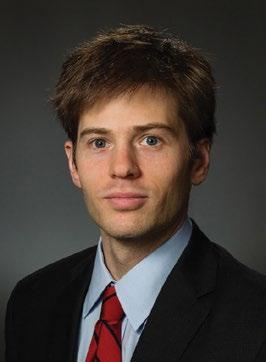
“It’s been a long six years,” Lorie admits. “People’s true colors come out. Maybe it’s a misunderstanding of what I’m actually asking … not understanding what my case is really about. I would love to have a more personal conversation with some of them. I can see where they’re coming from. Many years ago, I probably would’ve responded in a similar way. But then I came to know Jesus, and my life has changed.
“So, I’m an ambassador for Christ. Which is why it’s important that my projects don’t conflict with that. This is about Him, not me. And the things I’m asking for actually protect everyone. Whether they want to see that or not … that’s their choice. I’m not going to take it personally.”
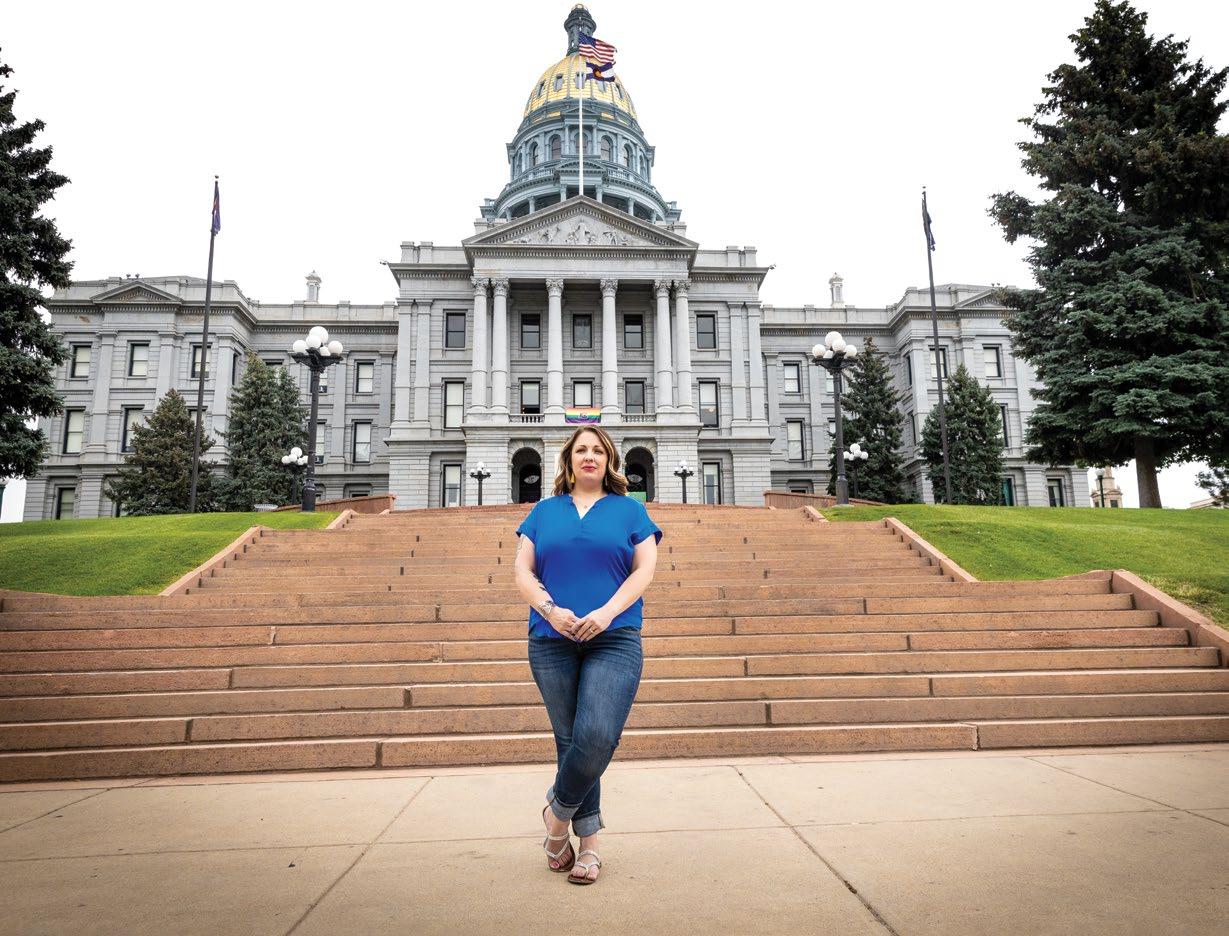
It’s not about the topic of marriage … it’s about, ‘Should government officials have the power to tell Americans what they have to say?’ ‘‘
Jonathan Scruggs, ADF Senior Counsel
15
Lorie Smith at the Colorado State Capitol
Jonathan Scruggs
The first court to hear Lorie’s case was a U.S. District Court in Colorado. That judge ruled against her. Two years later, the U.S. Court of Appeals for the 10th Circuit also ruled against her in a decision so strange and extreme that it bolstered ADF attorneys’ confidence for a successful appeal to the Supreme Court.
Notably, both the 10th Circuit and Colorado officials acknowledge that Lorie exercises no bias in how she treats her clients — including those who identify as LGBT. Both also concede that her graphic art and websites constitute speech and expression and are protected by the First Amendment.
Yet the 10th Circuit ruled that Colorado has every right to effectively eliminate views like Lorie’s and silence her expression, forcing Lorie and others like her to publish views they do not agree with. The government, in other words, can override anyone’s First Amendment rights, and no one is allowed to dissent.
ADF attorneys filed an appeal of that decision with the Supreme Court in September 2021. As with all appeals to the high court, the chances of Lorie’s being heard were less than one percent.
She beat the odds.
“If the lower court is upheld, well ….” Scruggs shrugs. “It’s dark days for the bedrock freedom of speech that every American is guaranteed by our Constitution. This is one of the primary freedoms that helps preserve and supports our free and flourishing democracy. Without it, government censorship and coercion become a reality for everyone.”

Early one morning last February, she was upstairs readying her hair for the day when the phone rang.
“We’re going to the Supreme Court!” Scruggs announced.
Stunned, Lorie shouted for her husband, who was putting the trash out. Her daughter came running.
“What’s wrong?”
“Go get Daddy!”
He bolted up the stairs and into the bedroom, flush and thinking the ailing family dog had died.
“Is everything all right?” he gasped.
“We’re going to the Supreme Court,” she told him. And for a long minute, they just stood there, looking at each other.
The ideal outcome is the Supreme Court saying that the government can’t compel anybody’s speech,” Scruggs says. “It’s not about the topic of marriage, it’s not about anyone’s particular belief or viewpoint. It’s about, ‘Should government officials have the power to tell Americans what they have to say?’”
The court is scheduled to hear Lorie’s case this fall. A decision will come by next June. Meantime, lawyers prepare, countless people all over the country pray, and Lorie, encouraged by those prayers, shares her story in the public square. She knows she’s not alone — that more and more people of faith in many walks of life are coming, in these tumultuous days, to the same kind of line she has come to.
HEAR
Lorie’s story in her own words at adflegal.org/fj-Lorie.
“The Lord is looking for His people to take a stand and speak up for what’s right in their own lives,” she says. “To stand in truth and to do it boldly. He blesses that.
“I’m not saying that He’s calling everybody to take a stand the way I have, but He’s called each of us to do something for His kingdom. I would just challenge everyone to think about what that is, and to do it — all in — not ashamed or fearful of what the world will do in response.”
16
Sen. Ted Cruz greets Lorie Smith at a June press conference demonstrating congressional support for her free-speech case. Also pictured are Rep. Debbie Lesko and ADF General Counsel Kristen Waggoner (far right).
My View
We Will Not Be Bullied Into Silence
By Julaine Appling President, Wisconsin Family Action
Like all pro-life advocacy organizations, at Wisconsin Family Action we often say that we are on a mission to protect the unborn. Earlier this year we learned firsthand how great the cost of that commitment can be.
In the early morning hours of Sunday, May 8 — Mother’s Day — an anarchist, pro-abortion group violently attacked our office building. The activists broke windows and threw two Molotov cocktails into the office, starting a fire. And to make certain their message was clear, they spray-painted graffiti on the outside of our building with the words, “If abortions aren’t safe, then you aren’t either.”
Thankfully, nobody was hurt. But as you can imagine, seeing the damage from the attack in person was startling. Walls were charred, and shattered glass was everywhere. Our office looked like a war zone. But the graffiti was even more alarming and disconcerting than the physical damage. It was a direct threat to our safety. While the graffiti was painted over early Monday morning, these words are indelibly imprinted on all our minds: “You aren’t safe.”
This attack was shocking, of course. But it shouldn’t have been, because it is exactly what pro-abortion extremists have promised. After the draft opinion from the U.S. Supreme Court in the Dobbs case was leaked, pro-abortion politicians and activists decried the end of Roe v. Wade and advocated intimidation and even violence. This particular violent act was intended to scare us into silence and to make us afraid to go to work, convene with like-minded family and friends, and proudly advocate for life in the public square.
It raises the question: How did we get here?

A pro-life crowd shows its support for the Dobbs case during a December rally at the U.S. Supreme Court.
We will not back down, and we will not stop doing what we are doing. Too much is at stake.
Julaine Appling
Instead of adhering to the Christian worldview upon which America was founded, our country has continued to accept — and now actively promote — a culture of death. This allows for no accountability to a Creator, and no belief in the reality that life begins at conception and that each person conceived is a unique and precious individual, worthy of protection. This worldview lies to women and is entirely self-centered. “Unplanned” children are an impediment to my desires, my plans, my happiness. Abortion takes one life and harms another.
Until and unless Christianity once again becomes more broadly embraced, we must continue to advocate for life. We know that God is the author of human life, so every human bears His image and has inherent worth. At
17
‘‘
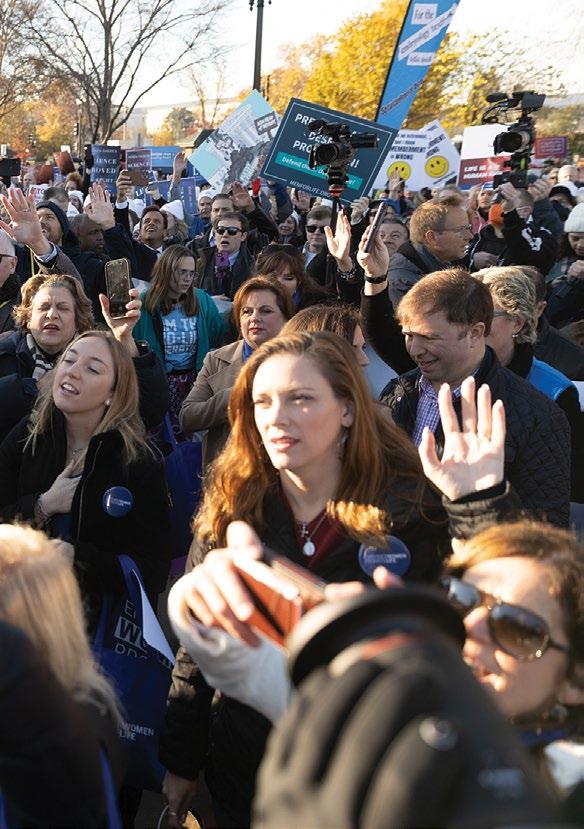
Wisconsin Family Action, our vision includes a Wisconsin where human life is cherished. That’s what we work for, and will continue to work for, regardless of the challenges we face.
Our work to protect life in our state is not deterred by the attacks we endured on May 8. In fact, we are more resolved than ever to advocate for the unborn. We have repaired our offices. We have remained on the job. And we will build an even stronger grassroots effort. We will not back down, and we will not stop doing what we are doing. Too much is at stake.
God has shown Himself immensely faithful in the aftermath of the May attack. We have seen in incredible ways the enduring truth that what man means for evil, God will turn for good. Consider, for instance, the phenomenal media exposure we have had, giving us an opportunity to speak from a national platform about the issue of life from a Christian worldview. People from across the country have contacted us to let us know they are praying for us, and many have invested financially.
We covet and deeply appreciate the prayers of God’s people as we move forward after this experience. We need wisdom for the many decisions we still must make
Until and unless Christianity once again becomes more broadly embraced, we must continue to advocate for life. ‘‘
Julaine Appling
as a result of what happened. We certainly pray for God’s protection for everyone who could be a target.
The next attack could be in response to any of the other issues my organization is very public about: marriage, family, or religious freedom. As with our stance on life, our position on these issues stems directly from our Christian faith.
I’ve long said that for those who are anti-life and anti-family to advance their agenda, they have to get rid of impediments — and that’s how they view us. We, and other groups like us — including 37 other state family policy councils around the country — are very public and vocal about what we believe, making us targets for sidelining, silencing, and even violence.
But this will not deter us. At Wisconsin Family Action, we will not cower, and we will not be bullied into silence. Now is the time for those of us who advocate for life, marriage, family, and religious freedom to stand tall and be bold — not in ourselves or for ourselves, but because we love God and seek to honor God by loving people and helping them see the truth.

18
The Wisconsin Family Action office was firebombed in the early morning of May 8.
Cal Thomas Veteran Columnist Discusses Challenges Of Practicing Faith In Journalism
By Chris Potts

Anative of Washington, D.C., Cal Thomas began his journalism career at the age of 18 as a copyboy at NBC News in Washington. Across six decades as a professional journalist, he has worked for Armed Forces Radio, NBC News, CNBC, Fox News, and the Salem Radio Network. For 10 years, he cowrote a column for USA Today, “Common Ground,” with his friend and political opposite, Bob Beckel. His twice-a-week political column, published in hundreds of newspapers nationwide, is in its 38th year.
His eleventh book, A Watchman In The Night, will be released in late fall.
F&J: You’ve covered the news for so long. Do you still see things that truly surprise you?
CT: Nothing really surprises me. Human nature never changes. If anything, it’s the rapidity of the growing secularism in our country. In the last Gallup Poll, 33% of the younger generation, when asked about their religious preference, said “none.” We’ve got a real problem there.
F&J: What do you, as someone inside media, wish people outside media “got” about those covering the news today?
CT: A friend of mine says the greatest power the media have is the power to ignore. You see this, for instance, in the abortion debate at the Supreme Court. You never see the media covering pregnancy help centers that care for women during unplanned pregnancies and the babies and the women after birth. If they mention them at all, it’s usually slandering them that they don’t care about the woman, or the baby after birth. I’ve spoken at pregnancy help center fundraisers for 40 years, and I know that not to be true.
That’s what you get in the media. When I started in the business, there were only three networks. There was no internet, and there were very few conservatives writing. Now, we have many, many sources of information, where people can get around the barriers, including the barrier of stories that are not covered.
So, try to get a meeting with the local TV news director or the editor of your newspaper. Suggest positive stories that they may have missed. It doesn’t do any good to be angry and constantly bashing the media, because that doesn’t change anything. Take a positive outlook. Find something you agree with, and thank the editor for carrying it or the news director for running it on television.
And if there is an error of some kind in the reporting, write a respectful letter, saying something like, “I have some experience in this, or some knowledge of this, and this might be helpful in a future story to you, because it was left out of the story you reported.” That kind of thing.
In the last Gallup Poll, 33% of the younger generation, when asked about their religious preference, said ‘none.’
got a real problem there.
19
‘‘
We’ve
Cal Thomas
Q&A
It doesn’t do any good to be angry and constantly bashing the media, because that doesn’t change anything. ‘‘
Cal Thomas
F&J: You have a lot of friends on both sides of the political aisle. How do you manage that — and how do you share your faith with people whose views don’t align with yours?
CT: Well, the media are made up of people, individuals. I criticize policies, of course, in my column, but I hope I don’t condemn people, because I want to leave the door open as a witness to them. When we love our enemies, very often they cease to be our enemies, and God can work through us in that.
People are always surprised that I have so many liberal Democrat friends. They ask, “How did you get to know them?” I say, “Well, I praise their work, if I can. Or I ask if they’re okay, or if there’s anything I can do to help.”
When they see that I don’t have an agenda — well, I do, but not the kind of agenda they’re thinking of — then they open their lives and, sometimes, hearts to me.
F&J: How did you become a Christian?
CT: I began to meet with some people associated with the National Prayer Breakfast in Washington. They invited me to a prayer breakfast hosted by a federal judge, and I heard him talk about the possibility of everybody having “a personal relationship with Jesus Christ” — a phrase I had not heard before. So, I got a copy of the Bible, started reading it, found out some amazing things about God and about myself.
In the midst of my drive to become a network correspondent in my 20s, I was fired. On the night I was fired, my wife told me, “You’ll never be free of this drive to be a success until you thank God for losing your job.” Because my job had become my god. It was the center of my life. That’s what I did, and my career went into a tailspin for 11 years while God worked out of me certain things that needed to be worked out of me, and so He would have room to fill me with Himself.
That’s the short version. If I gave you the 30-minute version, I’d have to have you call my agent.
F&J: You have spoken, the last year or two, at the Alliance Defending Freedom Journalism Academy for aspiring Christian and conservative journalists. Why is it important to you to pour some of your wisdom and experience into young people?
CT: Well, I see how I started in the business. I had some wonderful mentors; their pictures are hanging on my wall. People who instructed me by their life and by their work. [The Apostle] John says, in another context, “That which we have seen and heard we declare also unto you (1 John 1:3).” I want to pass along some of the wisdom and information that I received to younger people, because I want to see more believers in the business.
We have kind of retreated from all these cultural things where we used to occupy [the high ground]. There are a few believers in Hollywood, but not enough. There’s a scattering of believers — more at the local level than the national level — in journalism, but not enough. So, I want to encourage young people.
F&J: Do you think Christian journalists can succeed in journalism today?
CT: We don’t have to look for approval from the world. I haven’t won the Pulitzer Prize. I’ll never win any of the world’s awards. I don’t want them. If I ever got one, I’d have to go back and recheck everything I wrote! My rewards are not denied; they’re only delayed, and they’re much better and last a lot longer. So, I wouldn’t worry about what other people think. I would only be concerned [that] we’re doing God’s will.
F&J: You have a new book coming out — what’s it about?
CT: Yes, it’ll be out in the fall. It’s what my publisher calls my legacy book. It’s a look back at the 40 years that I’ve been writing a syndicated column and what I have observed in each year, with a few excerpts from those columns and some observations in retrospect.
Cal’s book A Watchman in the Night is available for pre-order through major booksellers.
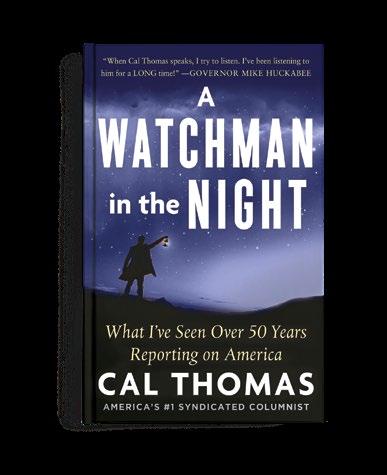
Opinion College Students: Freedom Of Speech Is Yours To Exercise And Defend
By Tyson Langhofer

A“comfort and care room” was set up for any law students who might be emotionally disturbed by his presence on campus. Other students set up a table to express their opposition to his viewpoints. But the Seattle University administration, to its credit, reminded the student body of its code of conduct: Even though the administration and students may disagree with what he will say, he has a right to speak.
The controversial speaker? My colleague, Alliance Defending Freedom Legal Counsel Bryan Neihart, who was invited to the university to talk about how the First Amendment protects all people to freely live and work in a manner consistent with their conscience and religious beliefs.
Although some students did protest outside the room where Bryan was speaking, the event was peaceful and constructive. The law students in attendance held diverse ideological and political views and asked thoughtful questions. Perhaps the administrators at Seattle University had heard about how another ADF attorney at another university was treated and did not want a repeat of that embarrassing debacle on their hands.
A couple of weeks prior to Bryan’s event in Seattle, ADF General Counsel Kristen Waggoner spoke at Yale
It’s a crisis when you can’t tolerate being in someone’s presence who holds views you disagree with, let alone allow them to speak.
‘‘
Tyson Langhofer
Law School as part of a bipartisan panel about how both sides of the aisle can find common ground in helping to preserve freedom of speech. But instead of engaging in civil discourse, a mob of around 120 law students showed up to hurl insults and obscenities, shout down the speakers, and enter and exit the room while chanting and pounding on the walls of the classroom.
These students sought to silence ideas and people they dislike through bullying and intimidation. And sadly, Yale Law administrators failed to condemn the behavior or enforce their own free-speech policy that bars students from “interfer[ing] with speakers’ ability to be heard and of community members to listen.”
21

PLet us as Christians set the example in how to engage in vigorous, yet respectful, discourse with those who hold differing opinions. ‘‘
Tyson Langhofer
ublic universities used to thrive as the marketplace of ideas where differing viewpoints were not only accepted but encouraged. What happened to modeling the values of intellectual curiosity, civility, and critical thinking? Now, those hallmark qualities of leadership are being replaced by uniformity of thought and speech. How boring and tragic. How ill-equipped young people are as they leave college to face the real world, where listening and learning are imperative to success in relationships and business.
And it’s not just in academia. What is happening at Yale and many other public universities is a microcosm of the free speech crisis we’re seeing on the national level. From social media to book publishers, from Big Tech to the entertainment industry, there’s a concerted effort to shut down Christian voices who are working to protect freedom and faith-filled living for future generations.
Ihumble, and extremely grateful to live in a land where we can respectfully disagree, even with those in power. As Elon Musk recently reminded his 95+ million Twitter followers after he presented his offer to acquire the social media giant, “I hope that even my worst critics remain on Twitter, because that is what free speech means.”

That is the best of America, isn’t it?
I can think of no single greater blessing and privilege as an American than our freedom of speech and religion. People have died for it. For others, fighting for this freedom has cost them their livelihoods.
t’s a free speech crisis when the government controls what you can and cannot say. It’s a crisis when you can’t tolerate being in someone’s presence who holds views you disagree with, let alone allow them to speak. And it’s a crisis when your identity is so tied to your ideological views that encountering someone who thinks differently shakes you to the core. That was the case when a student at Seattle University posted a sticky note on a flyer promoting Bryan’s talk, saying that Bryan’s mere presence on campus made the student feel unsafe and unwelcome.
Differing viewpoints should never make us feel unsafe. On the contrary, they should make us feel secure,
Now we, too, have an urgent duty to protect free speech and improve civil discourse in all spheres. Let us as Christians set the example in how to engage in vigorous, yet respectful, discourse with those who hold differing opinions. Whether we’re speaking to instruct or persuade, to entertain or explain, we must speak truth with love in our hearts toward all people.
VISIT
ADFlegal.org/fj-campus to learn more about your rights on university campuses.
And for all the students returning now to public universities, this freedom is yours to exercise. It is yours to try out, to defend, to keep alive. You have no guarantee that anyone will agree with you, but you are guaranteed your right to speak.
Tyson Langhofer is senior counsel and director of the Center for Academic Freedom at Alliance Defending Freedom.
22
“ADF is defending the religious freedom that my immigrant grandparents were seeking. We are investing in ADF to help preserve this freedom for our grandchildren and future generations.”
— David & Patricia M.
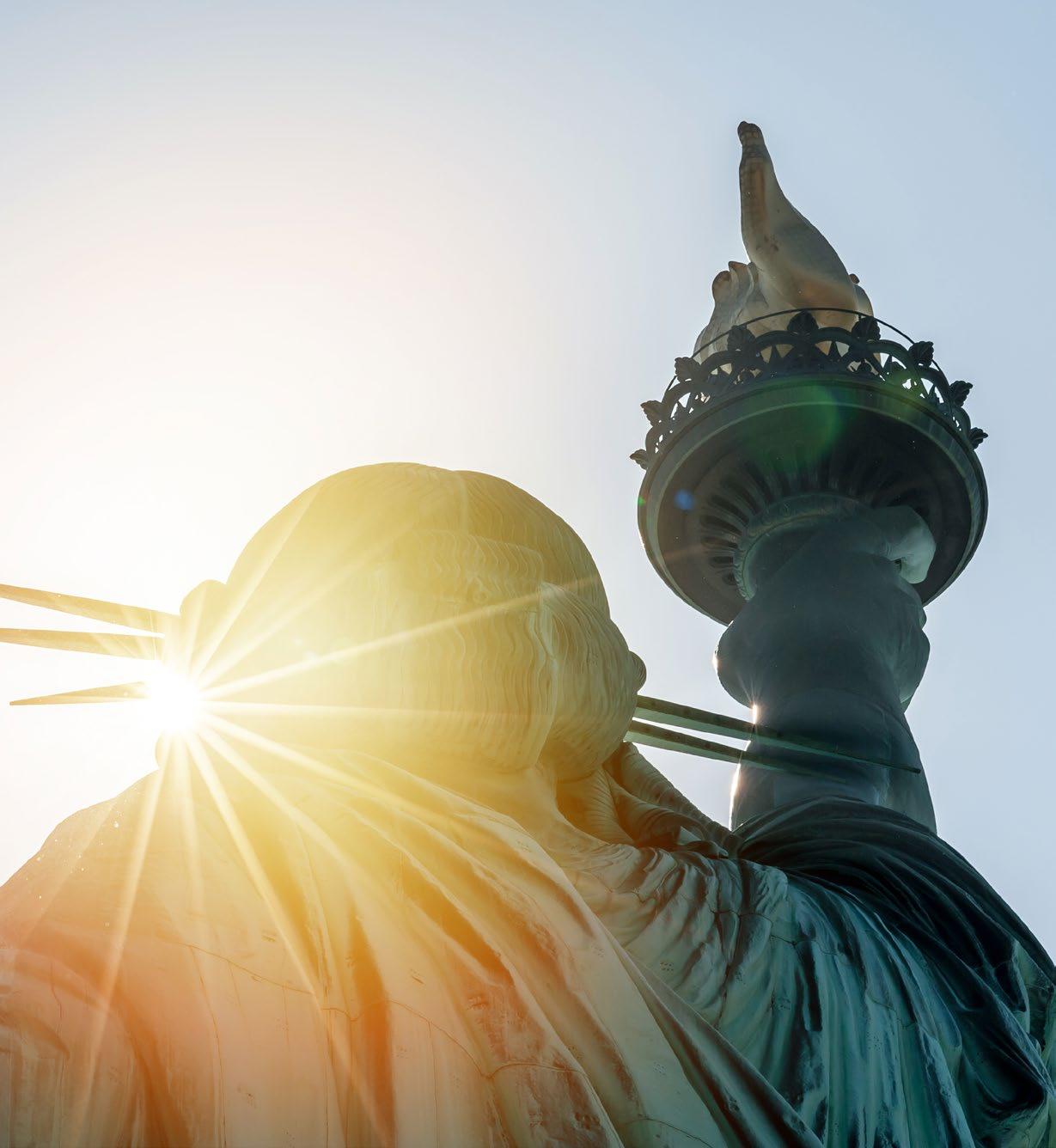

on a legacy of freedom.
contact ADF
at
or GiftPlanning@ADFlegal.org to discuss your legacy giving. Visit ADFFoundation.org for more information.
Pass
Please
Foundation
800-835-5233








 Justin Reeder, Love Life founder, with his daughter, Josie
Justin Reeder, Love Life founder, with his daughter, Josie

































